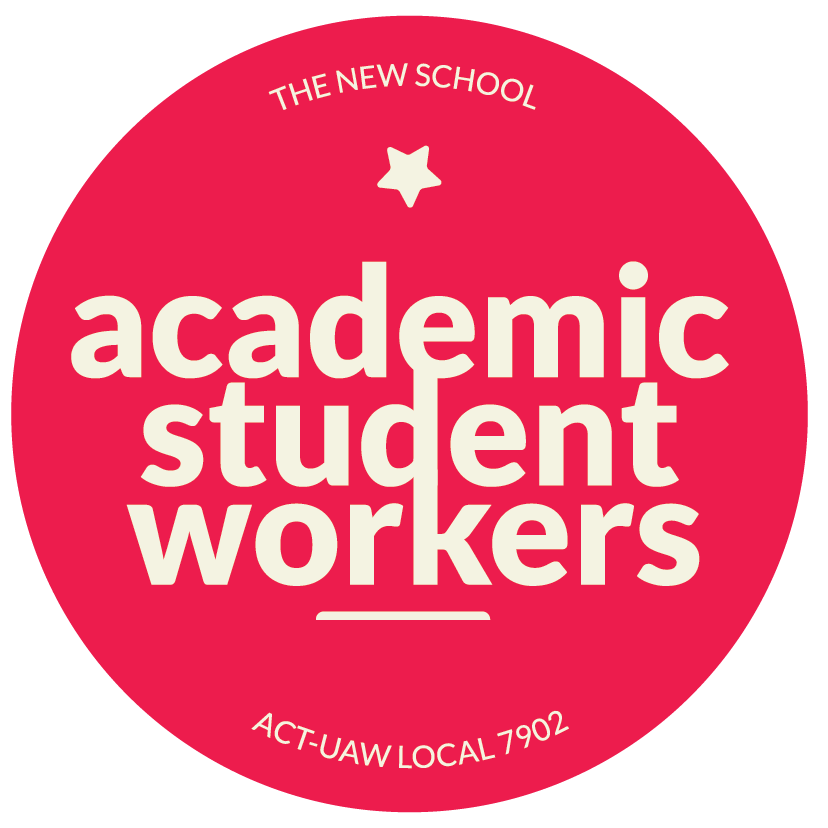Collective bargaining equalizes the power relationship between employees and their employer.
Without collective bargaining, The New School decides unilaterally whether to make improvements, keep things the same, or take things away. For example, they continue to decide unilaterally whether we get paid on time, whether we get annual pay increases that keep up with housing costs, etc. With a union, we harness our collective power and negotiate as equals with The New School to reach a legally binding contract that the administration cannot change without our consent.
The bargaining process allows us to decide democratically what issues to prioritize in these negotiations. As such, what student workers have won through collective bargaining at other universities varies, but in general, gains have been made in minimum stipends, health benefits, workload protections, and family benefits.
For example, NYU won in their first contract in 2002:
- 38% increase in minimum stipends (which also led Columbia to increase stipends at the time), and a 15% increase for the small number already making more than the minimum;
- Elimination of health insurance premium sharing (a savings of $1000 annually);f
- Guaranteed tuition/fee waivers for all graduate employees covered by the contract;
- A fair grievance procedure;
- Protection against having RA/TA appointments withdrawn at the last minute;
- Workload protections;
- Increased child care subsidies; and
- $100 per day for required pre-semester training or orientation.
Additional improvements established in the 2015 NYU contract include:
- Guaranteed annual minimum increases on total compensation, which protects and insures increases in stipends and other pay. During the current academic year, funded PhD TAs who teach both semesters will receive at least $37,783;
- Implementation of a family healthcare fund to provide up to 75% of premium subsidies;
- Implementation of a childcare fund, which provided a benefit to bargaining unit members of $2,140 per child in the first year of the contract;
- An improved dental benefit amounting to a savings of $240 per year to each graduate employee covered by the contract; and
- Reinstatement of most of the protections negotiated in the 2002 contract.
Here are some sample CBAs bargained by the UAW (links redirect to online PDFs):
New School Part Time Faculty (ACT-UAW Local 7902)
New York University Graduate Workers (GSOC-UAW Local 2110) – 2015 Comparison
New York University Graduate Workers (GSOC-UAW Local 2110) – 2001 Comparison
University of Connecticut Graduate Workers (GEU-UAW Local 6950)
University of Washington Academic Student Employees (UAW Local 4121)
University of California Postdoctoral Researchers (UAW Local 5810)
